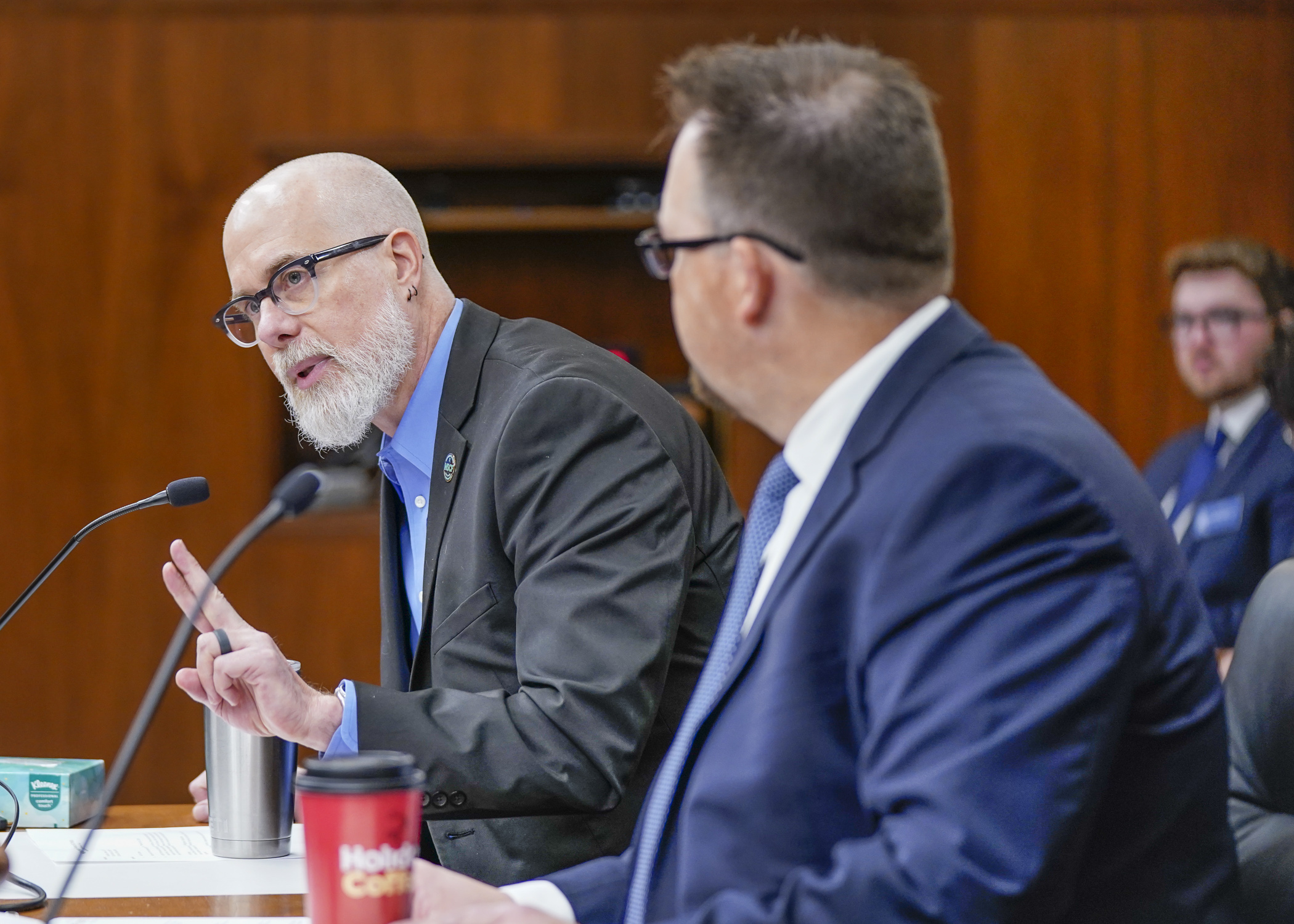Governor proposes more than 12 percent hike in higher education funding

Gov. Tim Walz is often seen wearing a University of Minnesota cap when he’s out and about, but his proposed higher education budget would give a bit more to the Minnesota State system of colleges and universities.
Well, “a bit” is a relative term, for his administration’s proposed outlay for Minnesota State is $877 million in fiscal year 2024 and $877.2 million in fiscal year 2025, while its suggested University of Minnesota appropriation is $752.4 million for each of those years. And the Office of Higher Education, which administers the state’s financial aid programs, would get $343.6 million in fiscal year 2024 and $334.4 million in fiscal year 2025.
Those are the big numbers in HF2073, which, as amended, would provide $3.94 billion in funding for higher education during the next biennium, a 12.3% increase over base. The bill is sponsored by Rep. Gene Pelowski, Jr. (DFL-Winona).
He chairs the House Higher Education Finance and Policy Committee, which laid the bill over on Tuesday.
[MORE: View a spreadsheet of the governor’s proposal]
Among the governor’s proposed higher education appropriations, here are what you might call the "Sweet 16” of big-ticket items for fiscal year 2024:
- $838.5 million for Minnesota State operations and maintenance;
- $681.8 million for University of Minnesota operations and maintenance;
- $247.7 million for state grants;
- $42.9 million for the University of Minnesota agriculture and extension service;
- $34.4 million for Minnesota State’s central office and shared services unit;
- $14.5 million for the state work-study program;
- $9.2 million for University of Minnesota health sciences programs;
- $8.5 million for the Office of Higher Education’s interstate tuition reciprocity program;
- $8.5 million for an American Indian Scholars program, split between the University of Minnesota and Minnesota State systems;
- $8 million for the University of Minnesota and Mayo Foundation Partnership;
- $7.2 million for the University of Minnesota’s Natural Resources Research Institute, Labor Education Service, Center for Urban and Regional Affairs, Bell Museum of Natural History, and Humphrey exhibit;
- $6.9 million for a student parent support initiative;
- $6.7 million for child care grants;
- $6.6 million for the MnLINK Gateway and Minitex systems;
- $6.5 million for Office of Higher Education agency administration; and
- $6 million for scholarships for students transferring from Minnesota State colleges to its universities.
The bill would establish a direct admissions program to automatically offer conditional admission into Minnesota public colleges and universities to Minnesota high school seniors. It also calls for a new American Indian Scholars grant program, a student-parent support initiative for expectant and parenting college students, and a tribal college supplemental grant assistance program.
Both Rep. Greg Davids (R-Preston) and Rep. Peggy Scott (R-Andover) questioned whether the increased appropriations were appropriate while enrollments in the Minnesota State and University of Minnesota systems are declining. Rep. Joe McDonald (R-Delano) suggested that “the appropriation is a wee bit too much,” and asked if it was doing enough for trade school programs.
Higher Education Commissioner Dennis Olson replied that the increase was necessary.
“We’re digging out of a deep disinvestment hole,” he said, adding that funding for two-year associate degree programs is “all over the bill.”
Related Articles
Search Session Daily
Advanced Search OptionsPriority Dailies
Speaker Emerita Melissa Hortman, husband killed in attack
By HPIS Staff House Speaker Emerita Melissa Hortman (DFL-Brooklyn Park) and her husband, Mark, were fatally shot in their home early Saturday morning.
Gov. Tim Walz announced the news dur...
House Speaker Emerita Melissa Hortman (DFL-Brooklyn Park) and her husband, Mark, were fatally shot in their home early Saturday morning.
Gov. Tim Walz announced the news dur...
Lawmakers deliver budget bills to governor's desk in one-day special session
By Mike Cook About that talk of needing all 21 hours left in a legislative day to complete a special session?
House members were more than up to the challenge Monday. Beginning at 10 a.m...
About that talk of needing all 21 hours left in a legislative day to complete a special session?
House members were more than up to the challenge Monday. Beginning at 10 a.m...